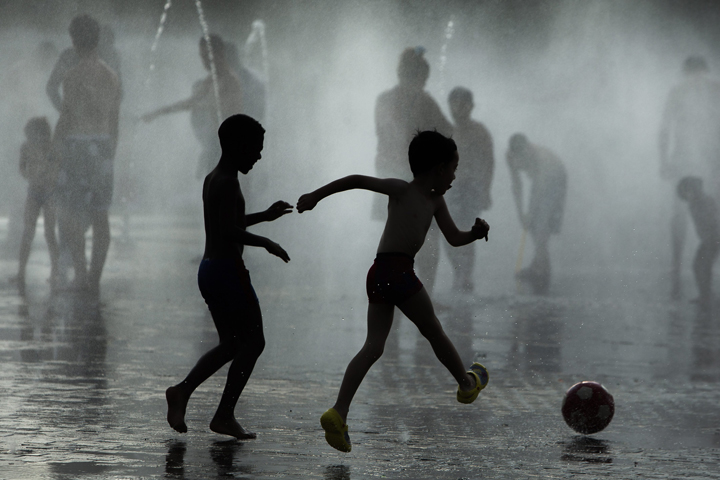While religion is generally believed to be tied to higher morals, a new study found that non-religious children are more likely to share, and be more empathetic than their religious counterparts.

Researchers studied 1,170 children, aged five through 12, in six countries: Canada, China, Jordan, Turkey, the U.S. and South Africa. The children were primarily from Christian (23.9 per cent), Muslim (43 per cent) and non-religious (27.6 per cent) backgrounds.
READ MORE: Influx of Christian and Muslim immigrants changing Canada’s religious makeup
The children were put through a sticker test referred to as “the dictator game”; they were shown 30 stickers and told to choose their favourite 10, and were told the stickers were theirs to keep. They were also told that not everyone would be able to receive the stickers.
The results? Christian and Muslim children exhibited similar levels of sharing, “however, both were significantly less altruistic than non-religious children.”
The children were also put through a “moral sensitivity task,” and shown a short, visual depiction of interpersonal harm, ie. a person pushing and/or bumping into others.
Researchers found that the religious children tended to be less forgiving of such offenses, and to support harsher penalties for such actions than non-religious children.
READ MORE: Giant bronze statue of Satan unveiled in Michigan
The parents of the children were also assessed; religious parents were more likely to report that their children were more empathetic and sensitive to the plight of others.
“However, religiousness was inversely predictive of children’s altruism and positively correlated with their punitive tendencies,” the study states.
The researchers noted that strong religious belief of “right and wrong” often leaves little room for a grey zone. This might prompt children from religious backgrounds to be more judgmental of other’s actions, and believe that interpersonal harm is more “mean” and deserving of punishment than non-religious children.
“Together these results reveal the similarity across countries in how religion negatively influences children’s altruism, challenging the view that religiosity facilitates prosocial behavior,” the study states.
The study, The Negative Association between Religiousness and Children’s Altruism across the World, was recently published in Current Biology.


Comments